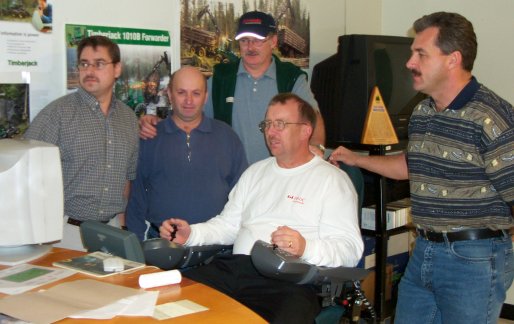
Employees of Corner Brook Pulp and Paper were recently trained on College of the North Atlantic’s mechanical harvester simulator. From left are Louis MacDonald, forestry training instructor with the college, mill employees Calvin Rideout and Dennis Biles, Chris Elliott, a forestry trainer with OnTrac, and at the controls is mill employee Everett Warford.